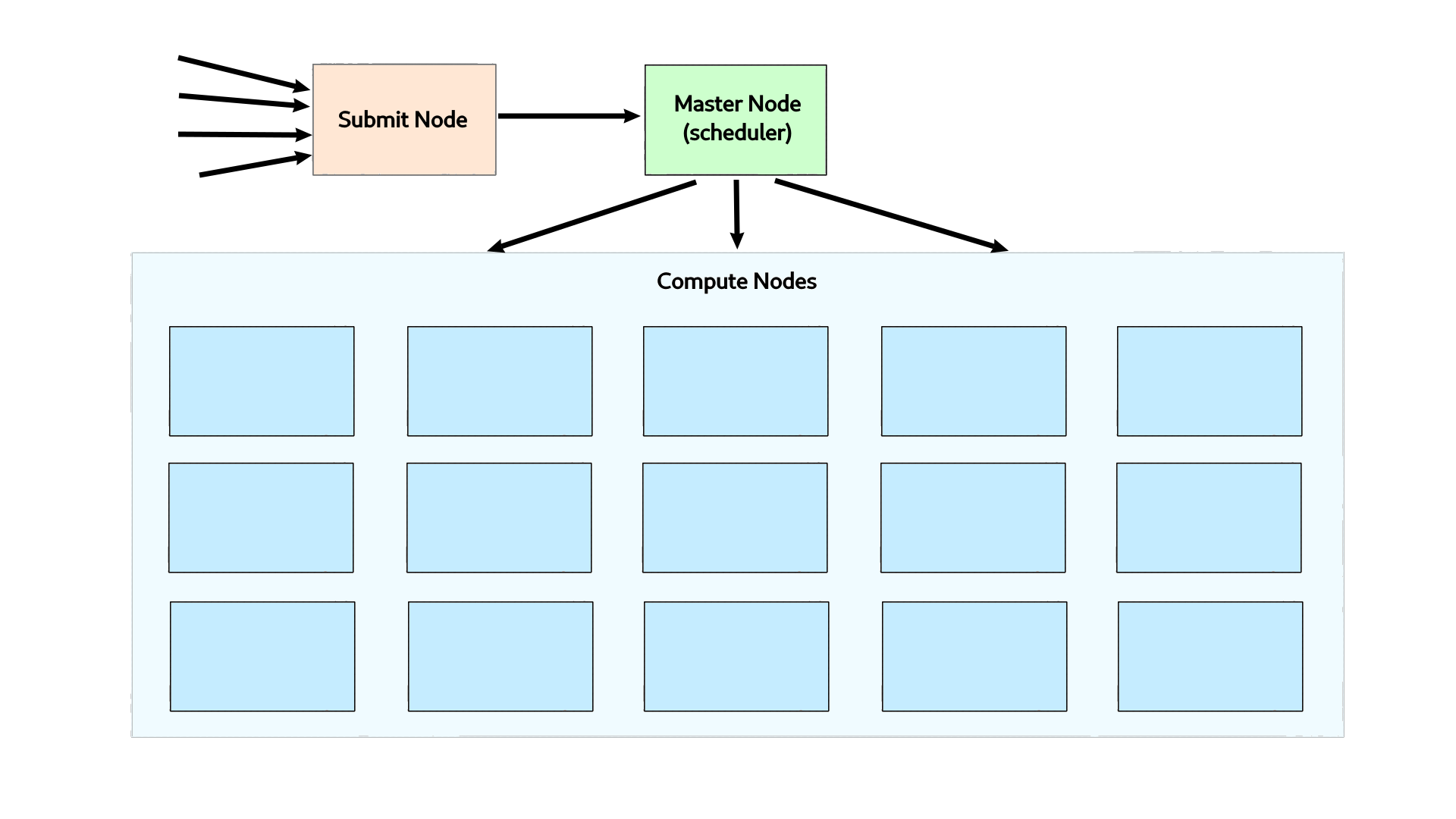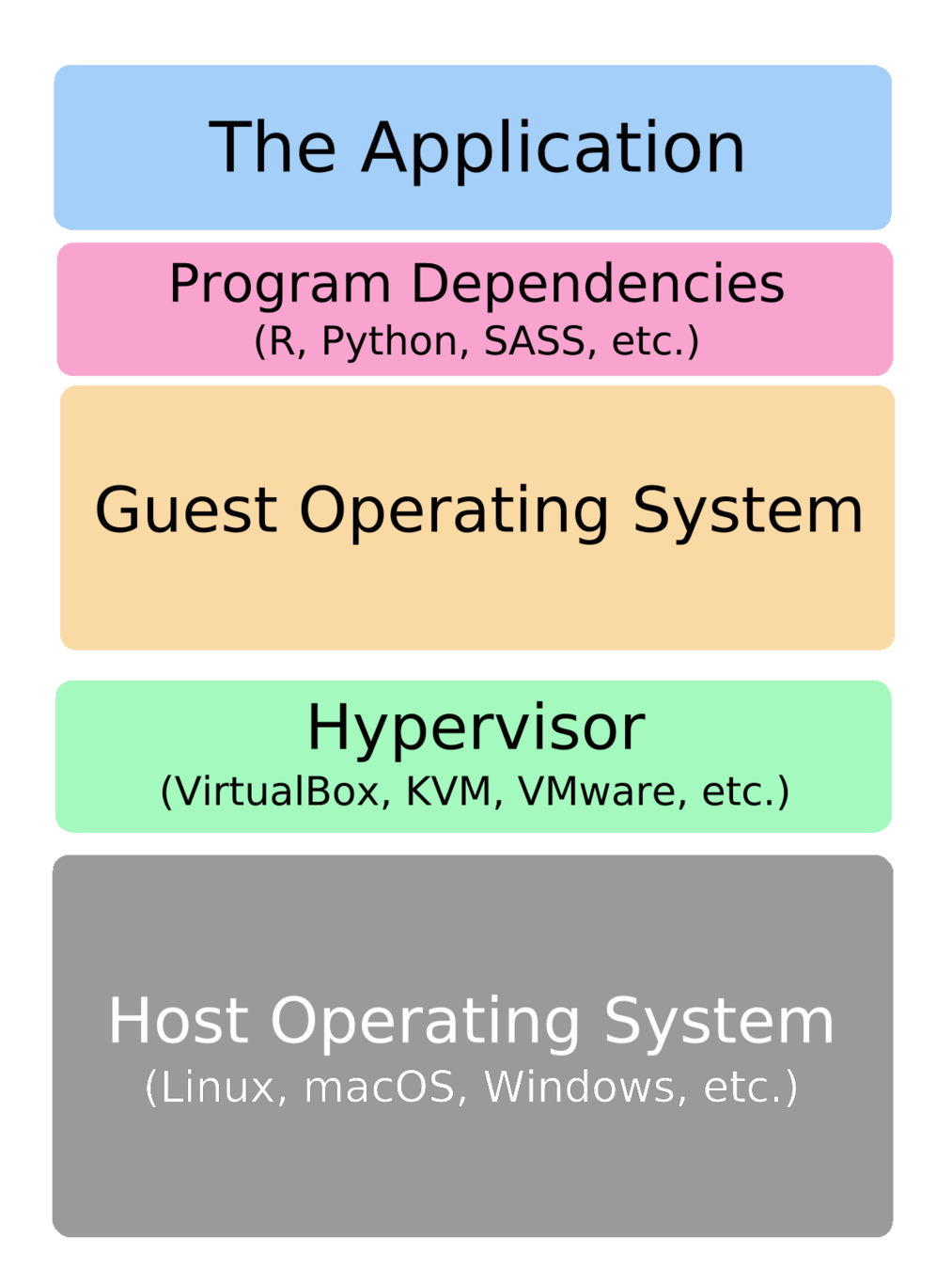That Container Thing
High-Performance Computing w/ Docker & Kubernetes
Garrett Mills
Follow along: https://slides.com/glmdev/k8s/live
Wait, who's the kid?
Hi, there.
- Software Developer
- Linux Proselytizer
- KU CS Undergrad
- CRMDA Lab Tech
glmdev@ku.edu

So what's the deal?
Traditional HPC
- Bare-Metal Nodes
- Scheduler
- Complex Environments
- Kinda Expensive
Pro: it's the standard
Con: it's expensive
Kubernetes
- Containers
- Scheduler
- Portable Environments
- Less Expensive*
Pro: cheaper & portable
Con: learning curve

Traditional HPC
Jobs run on bare-metal.
Environment is static.
No guarantee that each node is the same.
Also, it's kinda pricey...
24 Nodes
$2080/mo
($125k/5yr)
(koo-ber-net-ees)

I'm going to mispronounce this.
So, what is it?
Production-grade container orchestration.
a standard unit of software that packages up code and all its dependencies so the application runs quickly and reliably from one computing environment to another
container (n.) -
Source: Docker Resources, https://www.docker.com/resources/what-container



Source: Docker Resources

Source: Docker Resources
Fedora
Remember that environment file from earlier?
module purge
module load legacy
module load emacs/26.1
module use /panfs/pfs.local/work/crmda/tools/modules
module load Rstats/3.5.1
module load mplus
module load SAS
module load anaconda
This strategy requires these modules to have been added to all of the nodes by the cluster administrators.
FROM everpeace/kube-openmpi:2.1.2-16.04-0.7.0
RUN apt-get update
RUN apt-get install -y fish python3-pip apt-transport-https software-properties-common python-software-properties
RUN apt-key adv --keyserver keyserver.ubuntu.com --recv-keys E298A3A825C0D65DFD57CBB651716619E084DAB9
RUN add-apt-repository -y 'deb [arch=amd64,i386] https://cran.rstudio.com/bin/linux/ubuntu xenial/'
RUN apt-get update
RUN apt-get install -y r-base
COPY ./Rinst.R /tmp
RUN R --vanilla -f /tmp/Rinst.R
RUN pip3 install numpy mpi4py
WORKDIR /clusterfs
Ew.
Containers are "built" into images that can be used instantly.
This is awesome.
- HPC Environment is abstracted away
- Containers are easy to customize
- Containers are predictable
- Containers are reproducible
So back to Kubernetes.
"container orchestration" : Kubernetes
::
"scheduler" : Traditional HPC

Remember this? It still applies (mostly).
Node > Pod > Container
Pro: Containers are awesome.
Pro: Kubernetes can be cloud-hosted.
(Pricing can be assessed per-job.)
For example:
5 nodes x 4 cores/node
20 cores total
10 hour runtime
$1.36
Source: Google Cloud, https://cloud.google.com/products/calculator/